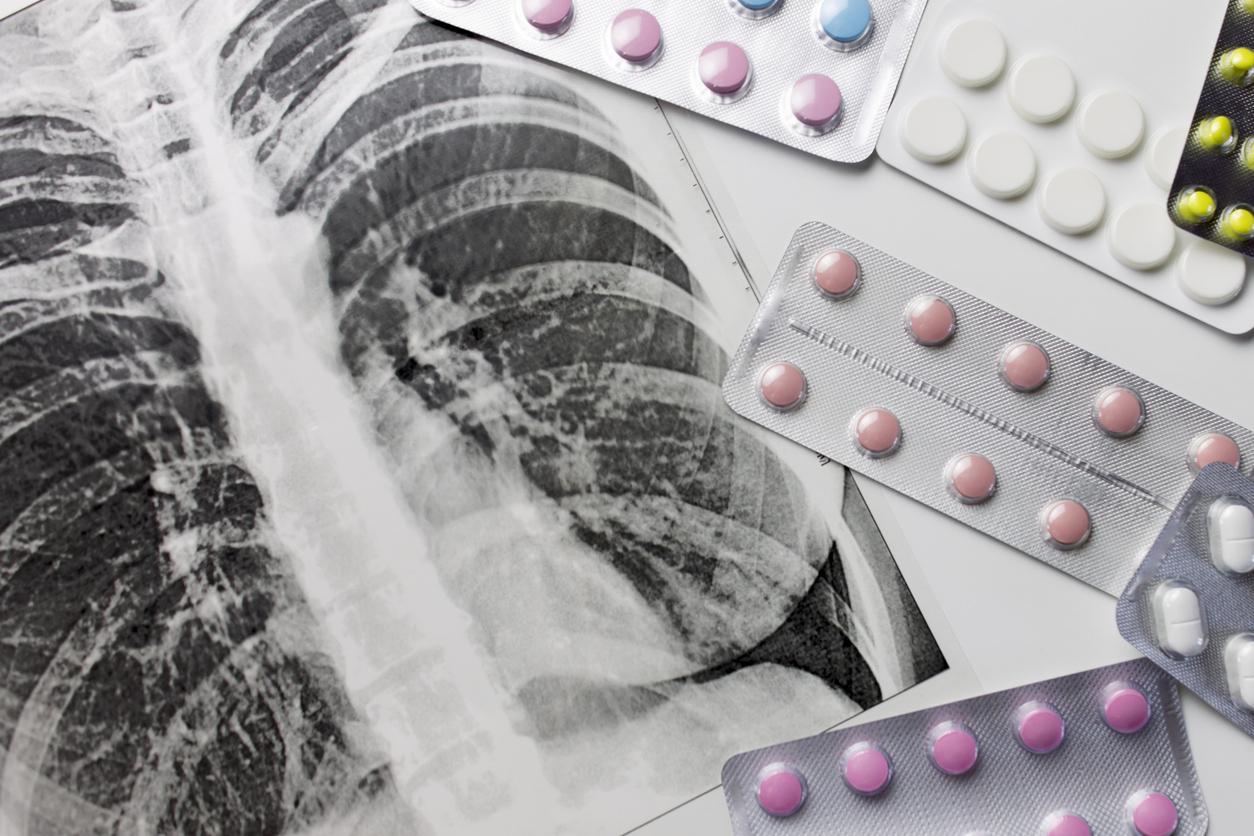The newly published results of two small clinical trials suggest that two novel antibiotics could provide safer alternatives to a highly toxic antibiotic currently used in drug-resistant tuberculosis (DR-TB) treatment regimens.
The phase 2 trials evaluated the efficacy, safety, and optimal dosing of sutezolid and delpazolid when used in combination with bedaquiline, delamanid, and moxifloxacin. Both drugs are from the same class of antibiotics (oxazolidinones) as linezolid, which is part of the World Health Organization (WHO)-recommended BPaL/M (bedaquiline, pretomanid, and linezolid, with or without moxifloxacin) regimen.
Although the 6-month, all-oral BPaL/M regimen is significantly shorter and more effective than previous DR-TB regimens, the prolonged use of linezolid has been a concern because of its toxicity, which can result in peripheral and optic neuropathy, blood disorders, and other side effects and has contributed to treatment interruption. Sutezolid and delpazolid have been developed to provide safer alternatives.
"Despite its effectiveness, linezolid is simply too toxic for many patients," principal investigator Norbert Heinrich, MD, PhD, of the Institute of Infectious Diseases and Tropical Medicine at LMU University Hospital in Munich, who was involved in both trials, said in a press release from the institute. "We urgently need safer alternatives in this antibiotic class."
The results of the two trials appeared this week in The Lancet Infectious Diseases.
A 'therapeutic leap forward'
The two phase 2b trials (PanACEA-DECODE-01 and PanACEA-SUDOCU-01) were conducted at multiple sites in Tanzania and South Africa by an international team of investigators.
In each trial, patients with newly diagnosed drug-susceptible TB were randomly assigned to one of five groups, four of which received different doses of sutezolid and delpazolid in addition to the "backbone" of bedaquiline, delamanid, and moxifloxacin over 16 weeks. Each trial had a control group that didn't receive either of the new drugs.
In the PanACEA-DECODE-01 trial (76 participants), a 1,200-millgram dose of delpazolid enhanced the effectiveness of bedaquiline, delamanid, and moxifloxacin, with no serious adverse events and only one treatment adverse event reported. In the PanACEA-SUDOCU-01 trial (75 participants), sutezolid was found to be safe and microbiologically effective at all doses, though no optimal dose was identified. Only two adverse events were considered to be related to the drug.
These findings suggest that both drugs may offer safer treatment options for TB patients, particularly those requiring longer courses of therapy.
Neither trial reported events of peripheral or optic neuropathy, anemia requiring transfusion, or lactic acidosis—issues that have been linked to prolonged linezolid use.
"These findings suggest that both drugs may offer safer treatment options for TB patients, particularly those requiring longer courses of therapy," said Tina Minja, MD, a principal investigator with the DECODE study at NIMR-Mbeya Medical Research Centre in Tanzania.
In a commentary that accompanies the two studies, TB experts from the University of KwaZulu-Natal in South Africa say that, while larger phase 3 trials that include people with HIV are needed to address some remaining concerns about the two drugs, these results suggest a substantially less toxic regimen for DR-TB could be on the horizon.
"Given the intimate relationship between drug tolerability and adherence, and the inextricable link between adherence and treatment outcomes, the advancement of sutezolid and delpazolid further down the clinical evaluation pipeline and closer to those who need it most does indeed feel like we are on the precipice of a therapeutic leap for drug-resistant tuberculosis," they wrote.
























